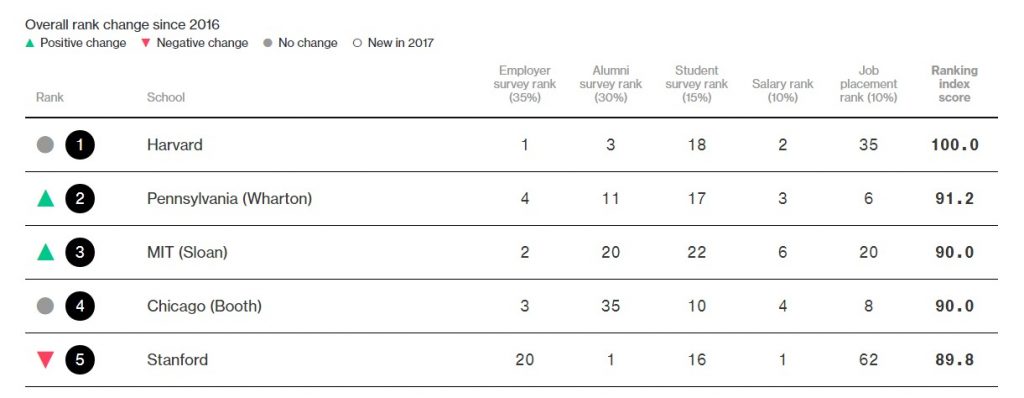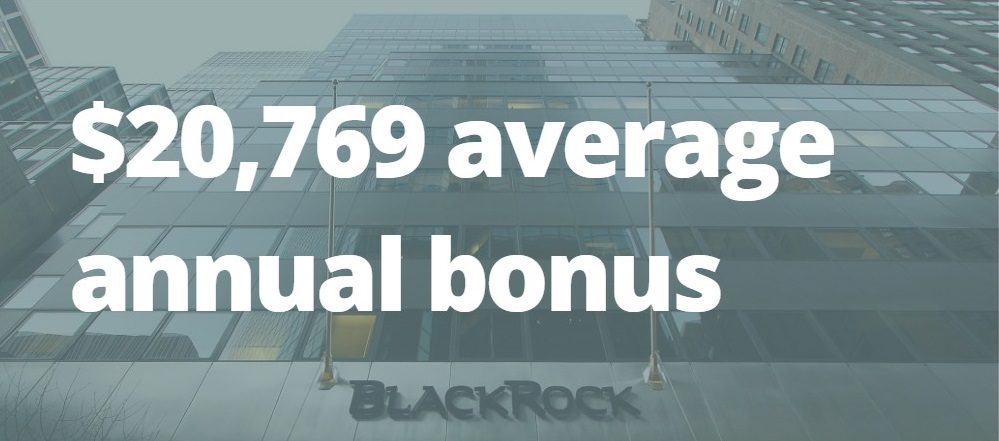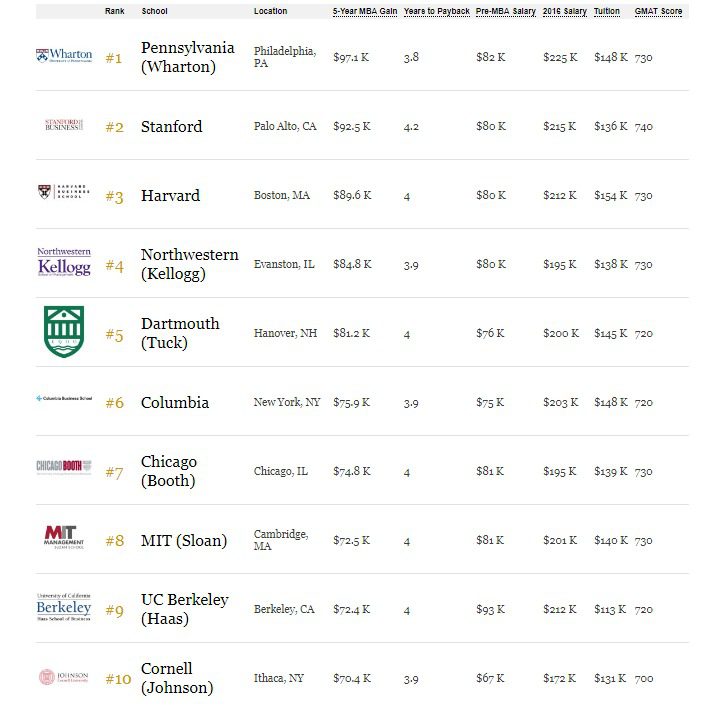How Philadelphia MBA Programs Help Lower-Income Applicants

Compared to Philly’s east coast metropolitan peers, its cost of living is laughably low. Additionally, Philly has all of the advantages of being located smack dab between DC and NYC. Although Wall Street has long since displaced Philly as the American center for banking, much of that infrastructure and tradition remain, which helps Philly maintain its status as a major economic powerhouse in the 21st century.
Since, according to Philly Mag, Philadelphia has one of the fastest growing millennial populations in the country, the city has creativity and energy that permeates every sector. All of these factors make Philly the perfect place to launch a career.
For low-income students looking to pursue an MBA in Philly, we’ve compiled a list of what some of Philly metro’s top schools are doing to help students fund their higher education.
Fox School of Business — Temple University
The Fox School of Business at Temple University has a variety of options for students looking to finance their MBA. In fact, according to the school’s website, 60 percent of first-year Temple students receive need-based aid each year. On average, first year students receiving need-based aid are awarded $15,000 toward tuition. Fox carefully assesses the applications of all incoming students, and the school distributes merit-based scholarships for those who demonstrate particular promise. There are also specific financial perks for Temple alumni coming into the MBA program. These students are not required to pay an application fee and receive a five percent tuition scholarship.
JUST FOR YOU: Fox Temple EMBA Jumps in New Financial Times Ranking
Lehigh University College of Business and Economics
The Lehigh University College of Business and Economics provides a some merit-based scholarships to helps students fund their education. Awards are determined by the Committee on Financial aid. The committee considers an applicant’s undergraduate record, test scores, and work experience. Scholarships include the Dean’s Scholar, which offers extremely promising students a full ride plus a $10,000 living stipend.
Lehigh also has a number of Director’s Scholars, who may receive awards anywhere from $5,00 to full tuition. Lehigh offers many other scholarships in addition to need-based financial aid specific that varies depending on the MBA track.
LeBow College of Business — Drexel University
When considering Philly Metro MBA programs that provide resources for low-income applicants, it would be remiss not to mention Drexel’s LeBow College of Business. At LeBow, an impressive 82 percent of full-time MBAs get aid that amounts to 62 percent of tuition. Additionally, nearly 70 percent of full-time students benefit from grants that covered about one fifth their tuition. Drexel also offers merit-based scholarships. Additionally, the school offers the URM Scholarship, which offers supplemental fiscal gifts to underrepresented minority students.
Smeal College of Business — Penn State University
Penn State’s Smeal College of Business has a large number of MBA alumni-funded scholarships that are awarded based on academic achievement, work history, and how well students fit into the Smeal program. Around 20 percent of incoming students receive $5-10,000 awards. There are fellowships for specific groups of students, including the Powerful Women Paving the Way Fellowship which is awarded to promising women, and the Maimuna Mijindadi Anyone Memorial Fellowship, for students of Nigerian descent.
The Wharton School — University of Pennsylvania
Students who apply to Wharton are automatically considered for fellowships that offer some level of financial support. Students also have the option of applying to any of over 700 external fellowship programs. Wharton students can also apply for private or federal loans.
The Ivy League business school offers a litany of scholarship opportunities for incoming and current students, from the American Association of University Women, to the Instituto Ling Scholarship Program for international applicants, among others.
Additionally, Wharton hosts a positively booming array of fellowship opportunities, including some of MetroMBA’s favorites, like the Forte Fellowships program and the Reaching Out LGBT MBA Fellowship.
For more information on Wharton’s many financial assistance opportunities, click here.
Harvard Business School Tops Bloomberg Businessweek Ranking

For the third straight year, Harvard Business School reigned supreme in the annual Bloomberg Businessweek “Best Business Schools” ranking, topping the Wharton School at the University of Pennsylvania and MIT Sloan School of Management. In joining HBS on the medals podium this year, those schools both saw significant gains over last year, climbing from sixth and seventh respectively.
Rounding out the top five this year is the University of Chicago Booth School of Business —holding steady year over year at fourth—and Stanford Graduate School of Business, which fell from second place in 2016 to fifth this year.

The methodology Bloomberg Businessweek uses to arrive at its annual MBA ranking involves weighting each of five principle factors. Employer surveys account for 35 percent of a school’s score. Alumni surveys account for another 30 percent. And a combination of current student surveys, salary rankings, and job placement together account for the remaining 35 percent of the final score.
High Risers
Ten out of the top 20 ranked schools in the 2017 Bloomberg Businessweek ranking advanced at least one spot over last year. Wharton and Sloan each managed to leap four spots, boosted by high praise from employers and hefty salary benefits for recent graduates. The University of Washington Foster School of Business also managed to jump from 19th to 15th overall this year, thanks largely to its top ranking as the nation’s best business school for job placement.
The Cornell S.C. Johnson Graduate School of Management and the UCLA Anderson School of Management both saw a rankings jump of three spots, with Johnson moving up to 13th and Anderson coming in at 19th.
The year’s biggest winner, however, may be the Penn State Smeal College of Business, which jumped a whopping 12 spots from last year’s 37th to come in at 25th in 2017. It wins the award for the year’s biggest overall rankings increase. The USC Marshall School of Business also saw a momentous climb this year, sidling up eight spots from 38th last year to 30th this year.
In the latter half of the rankings came another one of this year’s biggest risers, with the Terry College of Business at the University of Georgia jumping 11 spots from last year, up from 65th overall to 54th. Elsewhere, the David Eccles School of Business at the University of Utah, the Whitman School of Management at Syracuse University, the C.T. Bauer College of Business at the University of Houston, and the Pepperdine University Graziadio School of Business and Management all saw a jump of at least seven spots in the new ranking.
Once Mighty, Now Fallen
Stanford GSB, Duke’s Fuqua School of Business, Dartmouth’s Tuck School of Business, and Jones School of Business at Rice University may all be feeling a wee bit dizzy. Last year Stanford shot up to second from seventh the year before, but this year it finds itself demoted to fifth. Duke’s Fuqua School, which last year celebrated a momentous jump from eighth to third, this year fell back down to seventh. Dartmouth’s Tuck School of Business, which had one of last year’s biggest gains, rocketing up nine spots to break into the top five from a mere 14th place finish the year before, this year finds itself at seventh. Similarly, Rice Business, as the Jones School likes to be called, which last year catapulted 11 spots to number eight, this year slipped to tenth. But at least all maintained their footing within the top 10.
Emory’s Goizueta Business School and the Texas A&M Mays Business School, for their part, slipped out of the top 20 altogether. Goizueta slipped just slightly, from 20th to 21st, and Mays slid from 18th to 22nd. The University of Virginia Darden School of Business also stumbled, slipping from 12th last year to 17th this year. But the Charlottesville school at least managed to remain in the top 20, thanks in part to strong scores in the student survey and salary categories.
No school, however, lost more ground than the George Washington University School of Business, which fell an eye-popping 14 spots from last year, losing its place among the top 50 business schools in the United States.
Bloomberg BW has made multiple changes to its methodology in recent years, resulting in significant volatility in terms of where schools fall on the list even when not much has changed year over year at the individual schools themselves. This has led many to question the credibility of the ranking overall. That said, Clear Admit’s Alex Brown found this year’s results easier to swallow than some in recent years. “This ranking seems more reasonable to me this year,” he says. “Each of the M7 programs are in the top 10, and the schools I would consider in the top 16 are all in the top 20.”
You can view the complete 2017 Bloomberg Businessweek rankings here.
This article has been edited and republished with permissions from Clear Admit.
Admissions Tip: Round 1 Rejection Reflections

Last week a number of programs, including Wharton, Michigan Ross, and MIT Sloan, sent out interview invites to their Round 1 candidates. These invitations came on the heels of similar updates from the likes of Harvard Business School and Chicago Booth. As a result, many candidates are now diligently preparing for interviews, having made it to the next phase of a competitive admissions process.
Rejected Without Interview
Of course, we recognize that not all applicants are so fortunate. And since we’ve published a great deal of content on interview prep of late, we’re turning the tables and dedicating this week’s admissions tip to those of you who haven’t moved forward.
The interview invite stage for Round 1 is the first signal as to your potential for attending a leading business school, and for a few, it can be a rude awakening.
If you have not yet received any good news, despite submitting applications in Round 1, you’ll want to read this post very carefully.
Reconfiguring Following Rejection
If there is any good news when it comes to being rejected in the first round, it’s that it’s still early in the application season, and not too late to readjust your strategy and target appropriate programs for Round 2. Round 2 application deadlines generally fall in the first couple of weeks of January, which leaves a little more than two months to prepare a new set of applications. It is also often the case, that your first applications are not the strongest. You learn through this process, and could potentially submit stronger applications for Round 2. Or it might be the case that you need to re-evaluate your goals, and then target a new set of programs that are appropriate for those goals. You could also adjust the competitiveness of the programs you target. So if you struck at all of your R1 targets, you may need to shift your target to slightly lower ranked programs.
Rejection Reflection
You also might want to take a hard look at what the schools which chose not to interview you, might have found lacking. If it’s your GMAT score, you have two months to try to remedy it. If you failed to make a compelling case for the degree or to properly showcase your experience in your essays, it might be a good time to get a fresh perspective from a third party on your materials. If your recommendations may have been lacking, speak with your writers or seek out new colleagues who might be able to better support your candidacy.
Of course, if there isn’t something as tangible as a poor test score, shoddy essays, or subpar letters of recommendation, you may need to take a longer view. For instance, if you lack professional experience, leadership accomplishments, or outside activities, it might make sense to delay your MBA ambitions, and reapply in a following year. Reapplicants are generally looked upon favourably in the admissions process.
MBA Motivations
Finally, you might want to reassess whether the MBA is the right next step for you. Perhaps the admissions committees are doing you a favor, and nudging you in a different direction.
Chin Up!
There’s no doubt that receiving negative results can be painful, but it’s how you handle the situation that will determine your future. Don’t lose site of the fact that news of rejection(s) is actually useful feedback in a process that can be quite opaque. Take the feedback to heart, regroup, reassess, and devise a plan to help you reach your goals.
This article has been edited and republished with permissions from Clear Admit.
MBA Job Opportunities: BlackRock

Though many MBA grads are passionate about their career prospects, those driven to work in the financial industry may be more reticent to commit to a life of uncomfortable suits and harsh fluorescent lights. A TINYpulse study found that employees at financial service companies have some of the lowest career satisfaction rates out there, despite stable salaries. The study put the amount of financial service employees who are happy with their work environment at less than 22 percent. In fact, an eFinancialCareers study found that one third of bankers hate their jobs. So, does an MBA and a penchant for finance mean a life of tolerating punishing work hours with little recognition from colleagues and superiors? Not necessarily.
Recent MBA grads with a penchant for finance will be pleased to learn that BlackRock, Inc., one of the largest asset-management companies in the world, provides a different kind of environment from the majority of financial institutions. Business Insider consistently ranks BlackRock as one of the premier financial employers in the U.S, writing, “The firm is big on employee development plans and employee engagement. For example, employees get to pitch ideas to senior executives at the two-day Innovation Summit, which helps spur new products for retirees and connect coworkers across different departments, according to LinkedIn.”
Why Work at BlackRock?
In a Business Insider interview, Jeff Smith, Senior Managing Director at BackRock’s Head of Global Human Resources Group, called BlackRock, “… an incredibly passionate place with a very clear sense of purpose that comes from Larry Fink, our founder and CEO, to everyone else in the company.”
BlackRock is renowned for its relaxed corporate culture, and 73 percent of its employees report high job satisfaction. The company employs over 130 investment teams in 30 different countries, so there is ample opportunity to join BlackRock beyond its New York City headquarters.
BlackRock’s effort to create a successful and diverse environment has been nothing short of empowering. Since 2015, over 2000 of the company’s prominent employers joined in the “Driving Better Decisions” initiative, which aims to help remove “unconscious bias” in decision-making, according to the official BlackRock website, as well as rethink the way human resources recruits and develops diverse talent. While the gender ratio at the company is still predominantly male, BlackRock has also made a concerted effort to increase female employment in senior management roles to 30 percent by the end of the decade, signing the HM Treasury’s Women in Finance Charter.
Pay Day
According to recent PayScale survey figures, MBA grads, despite their role, earn around $86,000 annually at BlackRock. These figures fluctuate depending on the specific role, rising to as much as $316,000 per year for investment strategists. According to the same data, bonuses at the company are also pretty exceptional. Portfolio managers reported an average bonus of $39,000 per year, while even the lowest bonus figures neared $10,000 per year.

Figures according to PayScale data.
Interning at BlackRock
For students nearing the end of their higher education journey, BlackRock offers summer internships for a glimpse of life at the company. BlackRock’s global Analyst Program is a two year-long entry level program for new graduates. The program kicks off with a training in New York City. Throughout the program, trainees will develop their skills in communicating with clients and understanding how to help them manage fiduciary matters.
BlackRock offers several other internships, and is conscious of promoting diversity in their industry. The Founders Scholarship provides merit rewards and a summer internship to students who identify as Black, Hispanic, Native American, LGBTQ, or disabled. Merit awards for this scholarship can be as high as $15,000.
Getting Hired
In an interview with eFinancialCareers, Jonathan Jones, director of global campus recruiting at BlackRock, gave some insight into how interested candidates can get their foot in the door at the company.
“What I think makes a BlackRock person stand out though, is that we look for people who embody or represent our principles. For example, we have a commitment to innovation. Innovation—original thinking, problem solving, and creativity – is central to our identity. Equally, we have a strong commitment to teamwork, and we look for people who can join the dots between our disparate activities in ways which can solve problems for our clients,” Jones said.
According to Jones, BlackRock hires many recent university graduates with Bachelor’s degrees, and the company also hires MBA candidates who have work experience that is relevant to specific positions, such as real estate and equity research.
A recent highlight from Clear Admit on the best business school’s for MBA grads that want to break into the industry that these five schools produced the most finance employees:
- Columbia Business School
- University of Chicago Booth School of Business
- New York University Stern School of Business
- University of Pennsylvania’s Wharton School
- Cornell Johnson Graduate School of Management
BlackRock has been actively recruiting at the world’s high ranking universities, stopping by Columbia Business School as recently as last month for an information session. Read here to find out for more events the company is hosting in the coming weeks and months and check out more about a potential career with BlackRock below.
Warby Parker Co-Founder Talks About Wharton Days

Dave Gilboa, co-founder and co-CEO of the eyewear company Warby Parker, recently spoke with The Atlantic, wherein he gave insight into the process of starting a business. The interview was a part of The Atlantic’s “On the Shoulders of Giants,” series. The publication calls the series and exploration of, “The possibilities and pitfalls of mentorship.” Gliboa was a fitting choice for the series, since, according to the entrepreneur, a huge part of starting his business was reaching out to those with greater experience in business as well as those who had more knowledge of his particular industry.
“We spent a ton of time getting advice and or mentorship from people who had either started a business before, or who had expertise in a specific area—like optometry, fashion, design, or e-commerce,” Gilboa said.
The idea of starting an affordable online eyewear business came to Gilboa and his collaborators while they were pursuing their MBAs at University of Pennsylvania’s Wharton School. One of the students, Neil Blumenthal, had already run VisionSpring, a nonprofit that empowers women in impoverished areas to provide eye care services. Though Blumenthal had some experience in the eyewear industry from VisionSpring, the team still had a lot to learn before they could successfully get such an unconventional idea off the ground.
Jordan Kassalow, the founder of VisionSpring, offered significant support to the budding Warby Parker team. Kassalow is an optometrist, and asked them critical questions based on his expertise while expressing genuine enthusiasm for their idea.
Gliboa said that one of the most important thing he learned from his mentor was, “That there are hundreds of millions of people around the globe that need corrective lenses and don’t have access to them, and that getting someone a pair of glasses is one of the most effective poverty-alleviation tools in the world.”
The mentorship relationship was mutually beneficial, as Warby Parker has partnered with Kassalow’s nonprofit, VisionSpring, and for every pair of glasses Warby Parker sells, a pair is donated to someone less fortunate.
Wharton, Stanford Top Forbes’ 2017 Business School Ranking

For the first time ever, the Wharton School at the University of Pennsylvania topped the biennial Forbes list of the best business school’s in the United States.
Coming in second place on the Forbes 2017 rankings, revealed earlier today, was the Stanford Graduate School of Business, which was followed by Harvard Business School, Northwestern’s Kellogg School of Management, and Dartmouth’s Tuck School of Business rounding out the top five.

Forbes‘ top 10 U.S. business schools (2017)
Rounding out the top 20 were some familiar MetroMBA favorites, such as Columbia Business School (6th), Chicago Booth (7th), MIT Sloan (8th), UC Berkeley Haas (9th), UCLA Anderson (15th), the McCombs School of Business UT-Austin (17th), and the Mays Business School at Texas A&M (20th).
Just making the final cut on Forbes’ newest list, which includes only 70 schools, was the Fox School of Business at Temple University (60th), Pepperdine’s Graziadio School of Business and Management (65th), Northeastern’s D’Amore-McKim School of Business (66th), the Kogod School of Business at American University (67th), and the Gabelli School of Business at Fordham University.
Method To The Madness
Nearly every major publication that reveals its own respective business school ranking list has its own principle methodology in which it follows. For instance, unlike Forbes, the Financial Times ranking system relies more on alumni survey responses for its final ranking. While Forbes does utilize surveys in its ranking, its primary focus is on how graduates fare on their return on investment.
In the ranking release, Forbes staff writer Kurt Badenhausen notes:
“Our ranking of business schools is based on the return on investment achieved by the class of 2012. We examined more than 100 schools and reached out to 17,500 alumni around the globe. We compared graduates’ earnings in their first five years out of business school to their opportunity cost (two years of forgone compensation, tuition and required fees) to arrive at a five-year MBA gain, which is the basis for the final rank. Schools whose alumni had response rates below 15 percent or a negative return on investment after five years were eliminated.”
In regards to Wharton topping the 2017 list, Badenhausen writes, “These days most Wharton MBA students head to finance or consulting jobs upon graduation (79 percent of the class of 2012), which traditionally are the most lucrative areas for MBAs. The concentration in these sectors pushed Wharton’s current total compensation for the class of 2012 to the highest of any school in the world at $225,000.”
YOU MIGHT ALSO LIKE: The Highest MBA Salaries in Philadelphia
The exceptional cost of living around Stanford and shockingly low admissions rates (6 percent) contributed to the business school falling off its top spot from the prior year. Stanford GSB graduates, however, were given enormously valuable stock options after earning employment, with a median value of $380,000. Despite the astronomical figures, Stanford GSB grads still saw a dip of around $40,000 in total five-year compensation compared to the Class of 2010. Similarly, HBS grads saw a $28,000 five-year drop compared to the Class of 2010. Wharton 2012 grads, in contrast, gained $18,000 compared to two years prior.
In regards to employment, not much has changed since 2012. McKinsey and Co. was the top employer of the Wharton Class of 2012, hiring over 50 of the school’s 800-plus graduates. Alongside McKinsey were Bain, BCG, and Deloitte, which are still the school’s top employers. However, since then, Amazon has overtaken Goldman Sachs in the Wharton recruitment war.
Thomas Jueng, Seoul native and 2012 Wharton grad, tells Forbes, “Wharton was a great springboard to make a transition geographically and job position-wise with a strong brand name and network as well as providing practical knowledge.”
Read the entire Forbes list of the best U.S. business schools here.
